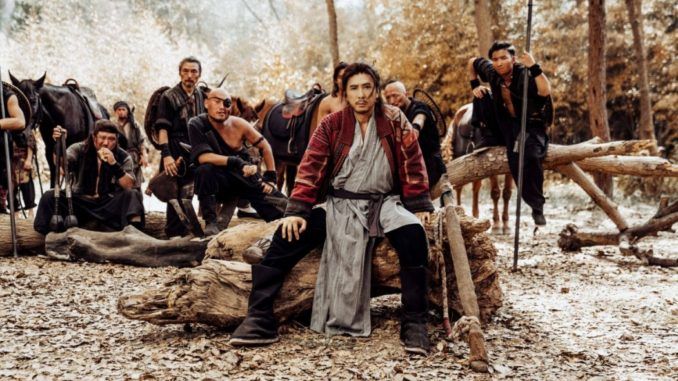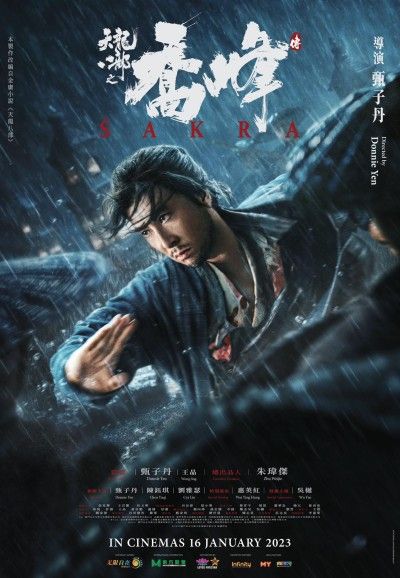
Rating: B-
Dir: Donnie Yen, Ka-Wai Kam
Star: Donnie Yen, Chen Yuqi, Emi Lo, Wu Yue
This is an adaptation of wuxia novel Demi-Gods and Semi-Devils, which has previously been made into multiple moves and TV shows. Its length (it was serialized over close to a three-year period), complexity and multitude of characters offer a lot of scope, and explain why none of this rings a bell, even though I’ve seen some of the previous film adaptations. Mind you, it’s kinda densely plotted, starting with an opening caption which seems to cram in so much information, I felt I should be taking notes for the final exam. Events take place during a period in Chinese history when there was a struggle between the Song and Khitan empires, with fierce enmity smouldering on both sides.
Qiao Feng (Yen) was a foundling, brought up by a Song family, who has risen to become one of the heads of the Beggars’ Gang – not that they seem to do any actual begging, but whatever. However, he’s framed for the murder of another leader by Lady Ma (Yuqi) and is forced out. When he returns home, he finds his parents dead and is blamed for that too. He goes to visit his sifu at the Shaolin temple, where… Yep, a) dead, and b) Qiao is again the chief suspect. He’s forced to flee along with thief Azhu (Chen), and seeks to find the true perpetrator, while also uncovering the truth about his own origins, which call his personal identity into question.
 Have to say, from my position (horizontal, on the couch, with a bag of Doritos), Yen is looking not bad for someone now entering his sixties. His character here seems to be a couple of decades younger. That’s a good thing, considering Chen, whose character becomes the romantic interest here, was born the same year Yen was making Once Upon a Time in China II. Given Donnie’s age, it is understandable, albeit a bit disappointing, to see a fair amount of CGI used here – the opening fight is perhaps the worst offender, both in quantity and quality. You wonder why they bothered, since when the film sticks to showing off Yen’s talent, it’s more than fine: he seems barely to have lost a step in speed.
Have to say, from my position (horizontal, on the couch, with a bag of Doritos), Yen is looking not bad for someone now entering his sixties. His character here seems to be a couple of decades younger. That’s a good thing, considering Chen, whose character becomes the romantic interest here, was born the same year Yen was making Once Upon a Time in China II. Given Donnie’s age, it is understandable, albeit a bit disappointing, to see a fair amount of CGI used here – the opening fight is perhaps the worst offender, both in quantity and quality. You wonder why they bothered, since when the film sticks to showing off Yen’s talent, it’s more than fine: he seems barely to have lost a step in speed.
The best scene is probably where Qiao is breaking ties with his former allies. This involves a lot of drinking, and subsequent drunk-fu; even though you can still detect the visual effects here, they are used to enhance the action, not replace it. At 130 minutes, there’s a lot of background plot, and the romance between Qiao and Azhu is sweet, rather than approaching Crouching Tiger levels of awesome intensity. For a Western viewer, it feels more of a solid and workmanlike effort, than anything which redefines the genre, though I suspect if you’re familiar with the source novel (and I imagine, many of the Chinese audience would be), you’d perhaps get more from it. A solid grounding in Chinese history might not hurt either.
